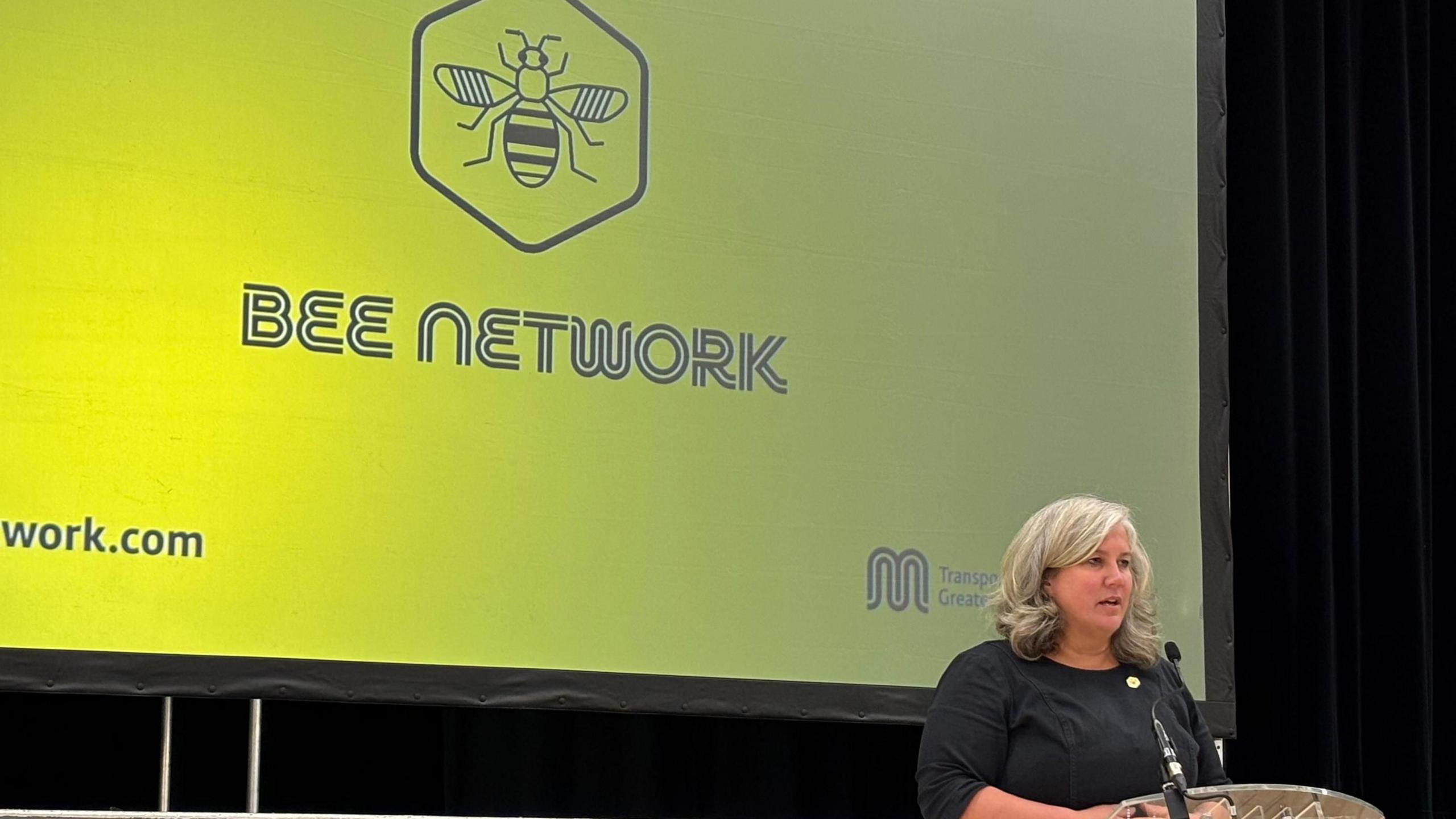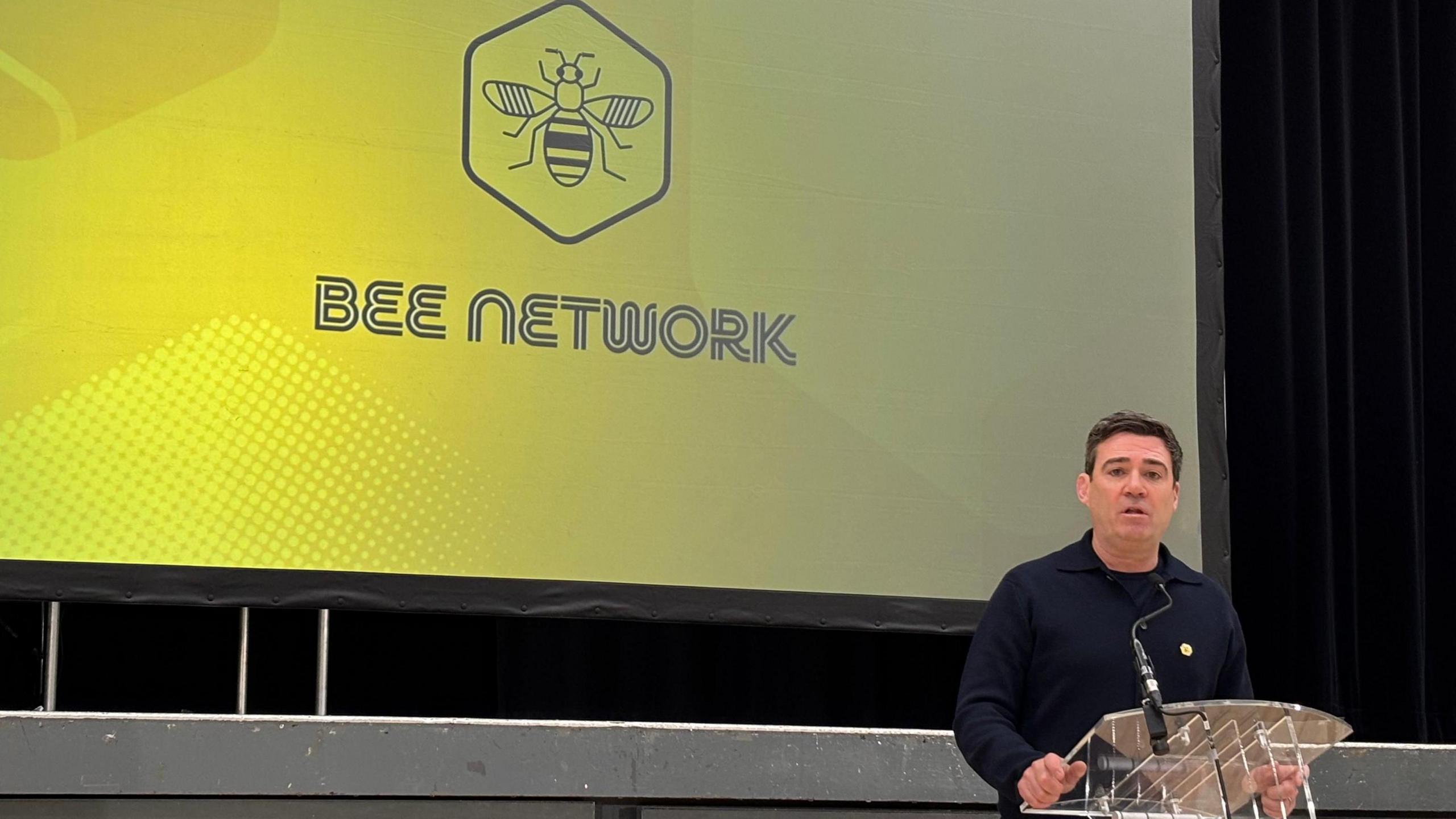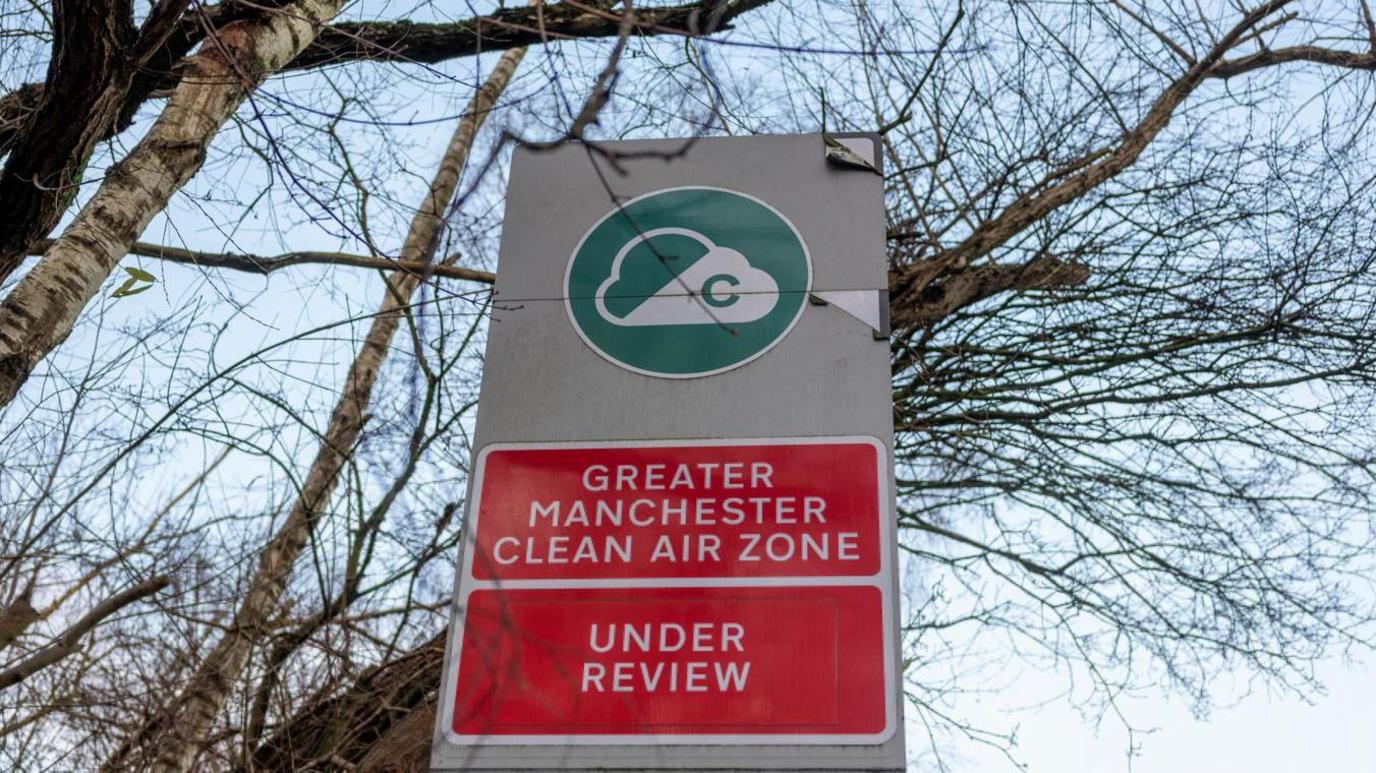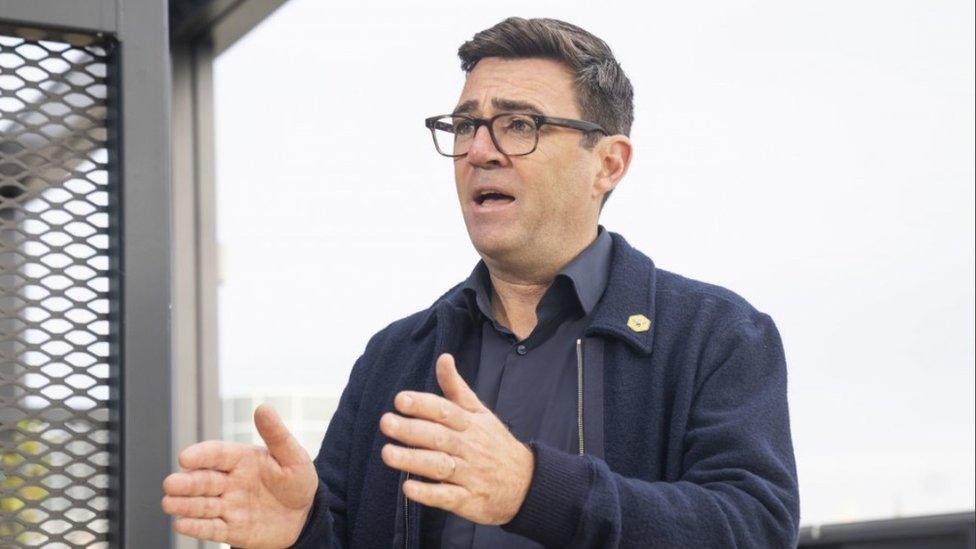No plans for clean air zone charges - minister

Heidi Alexander has ruled out pollution charges for drivers
- Published
There are "no plans whatsoever to enforce a paid-for clean air zone across a north west county, according to the transport secretary although a "formal" decision has yet to be made.
Heidi Alexander said the decision was one for "local leaders based on what's best for their local areas".
Currently, the government is reviewing Andy Burnham's "investment-led approach" to cleaning Greater Manchester's air.
The department for environment, food and rural affairs (Defra) has issued a statement saying it "will provide an update shortly".

Andy Burnham said the charges would have harmed people on low incomes
The Defra statement said: "Air pollution is a public health issue, and we recognise there is always more we can do to reduce harmful nitrogen dioxide emissions.
"Local authorities are best placed to determine the most effective route to reducing nitrogen dioxide in their cities. We are committed to working with them as they deliver legally binding obligations to improve the air we breathe.
"We are concluding our consideration of Greater Manchester's Clean Air Plan proposal, but there are no plans to impose pay per mile road charging. We will provide an update shortly."
Burnham's plan would not charge drivers to use the roads in the city region after a U-turn from the first clean air zone which was planned for April 2022 and suspended after a backlash with the mayor unveiling a new plan in December 2023.
This plan still needs government permission but the transport minister has appeared to quash the idea.
Ms Alexander said: "The government does not have any plans to enforce clean air zones on cities across the country where local leaders don't want to have them. There's lots of ways to clean up the country's air, and the challenges will be different in different towns, different cities and so there will be different approaches."
When pressed she added: "We've got no plans whatsoever to enforce a paid-for clean air zone in Greater Manchester. I could not be clearer: this is for local leaders."
The Local Democracy Reporting Service writes that Mr Burnham was "obviously very encouraged by what the secretary of state said" speaking at the joint press conference in Wythenshawe to mark the completion of implementing Bee Network buses.
He added: "We were worried if we introduced a charging zone where people could not avoid the charge because they couldn't afford to change their vehicle, it would make the cost-of-living crisis worse for a lot of our residents.
"We will await the formal decision because it's not [Heidi Alexander's] department, it's the Department for Environment, Food and Rural Affairs who will make that decision."
Bev Craig, Manchester city council leader, welcomed the change in the government's stance, but said there was "a bigger job at hand to clean up our air".
The city of Manchester not only has poor air quality, it also has some of the poorest health outcomes in the country.
Listen to the best of BBC Radio Manchester on Sounds and follow BBC Manchester on Facebook, external, X, external, and Instagram, external. You can also send story ideas to northwest.newsonline@bbc.co.uk, external and via Whatsapp to 0808 100 2230
Related topics
More on
- Published18 September 2024

- Published13 December 2023
